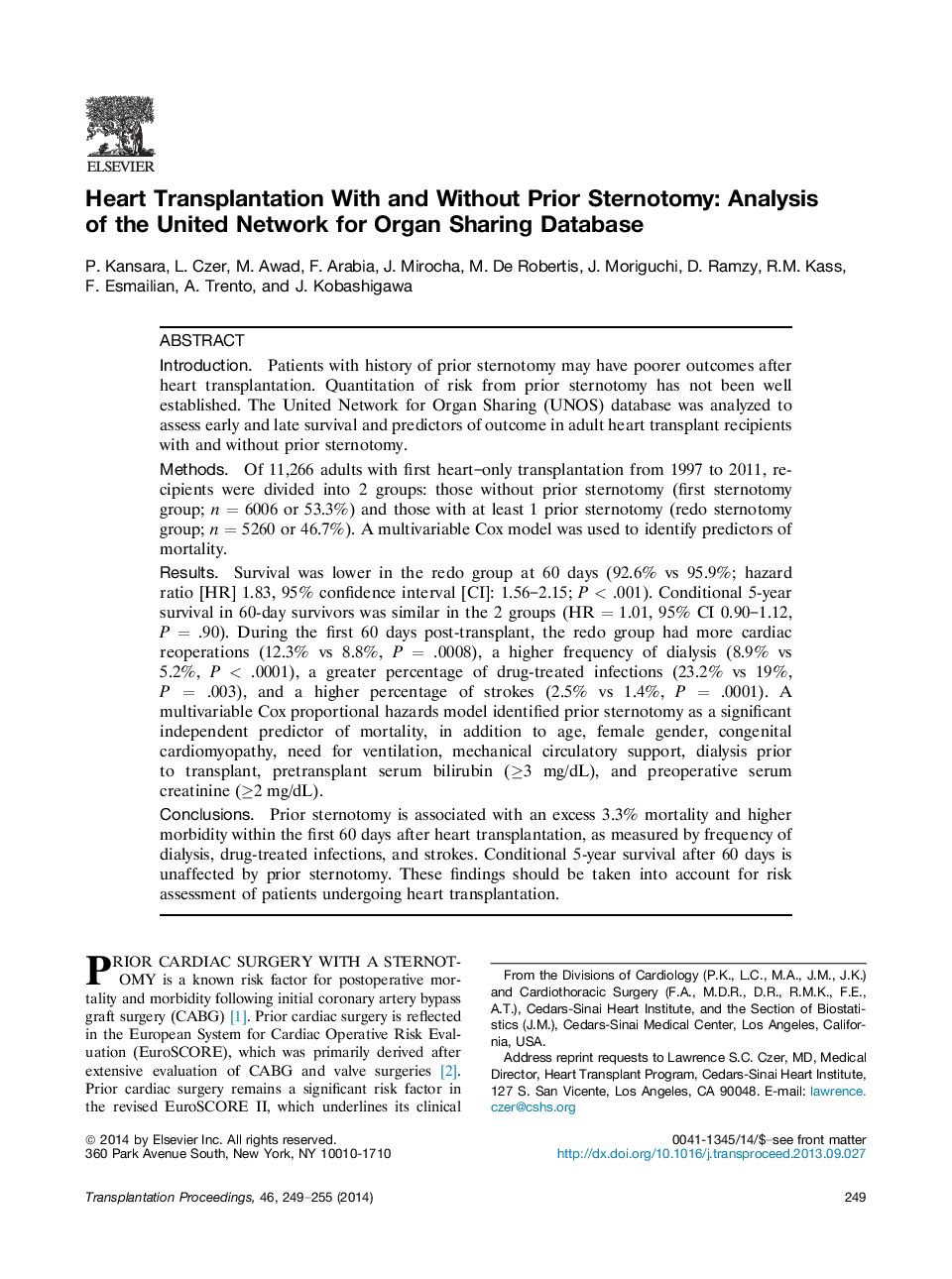| Article ID | Journal | Published Year | Pages | File Type |
|---|---|---|---|---|
| 4256777 | Transplantation Proceedings | 2014 | 7 Pages |
IntroductionPatients with history of prior sternotomy may have poorer outcomes after heart transplantation. Quantitation of risk from prior sternotomy has not been well established. The United Network for Organ Sharing (UNOS) database was analyzed to assess early and late survival and predictors of outcome in adult heart transplant recipients with and without prior sternotomy.MethodsOf 11,266 adults with first heart–only transplantation from 1997 to 2011, recipients were divided into 2 groups: those without prior sternotomy (first sternotomy group; n = 6006 or 53.3%) and those with at least 1 prior sternotomy (redo sternotomy group; n = 5260 or 46.7%). A multivariable Cox model was used to identify predictors of mortality.ResultsSurvival was lower in the redo group at 60 days (92.6% vs 95.9%; hazard ratio [HR] 1.83, 95% confidence interval [CI]: 1.56–2.15; P < .001). Conditional 5-year survival in 60-day survivors was similar in the 2 groups (HR = 1.01, 95% CI 0.90–1.12, P = .90). During the first 60 days post-transplant, the redo group had more cardiac reoperations (12.3% vs 8.8%, P = .0008), a higher frequency of dialysis (8.9% vs 5.2%, P < .0001), a greater percentage of drug-treated infections (23.2% vs 19%, P = .003), and a higher percentage of strokes (2.5% vs 1.4%, P = .0001). A multivariable Cox proportional hazards model identified prior sternotomy as a significant independent predictor of mortality, in addition to age, female gender, congenital cardiomyopathy, need for ventilation, mechanical circulatory support, dialysis prior to transplant, pretransplant serum bilirubin (≥3 mg/dL), and preoperative serum creatinine (≥2 mg/dL).ConclusionsPrior sternotomy is associated with an excess 3.3% mortality and higher morbidity within the first 60 days after heart transplantation, as measured by frequency of dialysis, drug-treated infections, and strokes. Conditional 5-year survival after 60 days is unaffected by prior sternotomy. These findings should be taken into account for risk assessment of patients undergoing heart transplantation.
